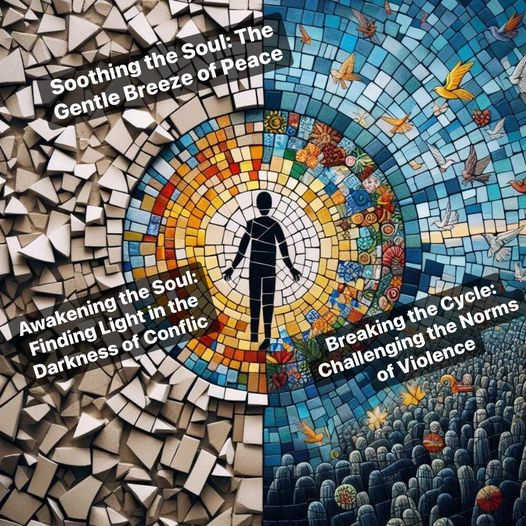
The act of taking a life isn’t just about removing an individual from existence; it sets a harmful precedent that affects all of humanity, whether directly or indirectly. Every single crime, therefore, carries a weight that extends far beyond its immediate impact, echoing throughout society like a universal truth. Each violent act leaves behind a stain, like ink spilled on the fabric of society, its spreading tendrils reaching far beyond the immediate moment. It’s akin to dropping a stone into a calm pond, the ripples of which disturb the serenity of all who dwell nearby.
Similarly, the wisdom shared in the Quran (See 5:32) illuminates this truth like a guiding light in the darkness. To save a life is to safeguard the very essence of humanity, akin to preserving the intricate mosaic of existence itself. Conversely, to take a life is to shatter that mosaic, leaving behind fractured pieces that echo the pain of loss throughout eternity.
In contrast, the power of peace can be likened to a gentle breeze, soothing the tensions that threaten to tear societies apart. When individuals rise above the fog of prejudice and bias, they become architects of harmony, laying the foundation for tranquil coexistence. Violence, on the other hand, is like a raging wildfire, consuming everything in its path without discrimination.
While violence seeks to weaken adversaries, peace empowers individuals to stand firm like mighty oaks, their roots anchored in the soil of understanding and compassion. It’s a universal truth that the true measure of strength lies not in causing harm to others but in fortifying one’s own spirit against the storms of adversity. Success, then, is not found in the ashes left by destruction but in the fertile soil where seeds of peace can flourish, nourished by the waters of empathy and goodwill.
It is imperative that all violence around the world comes to an end.

